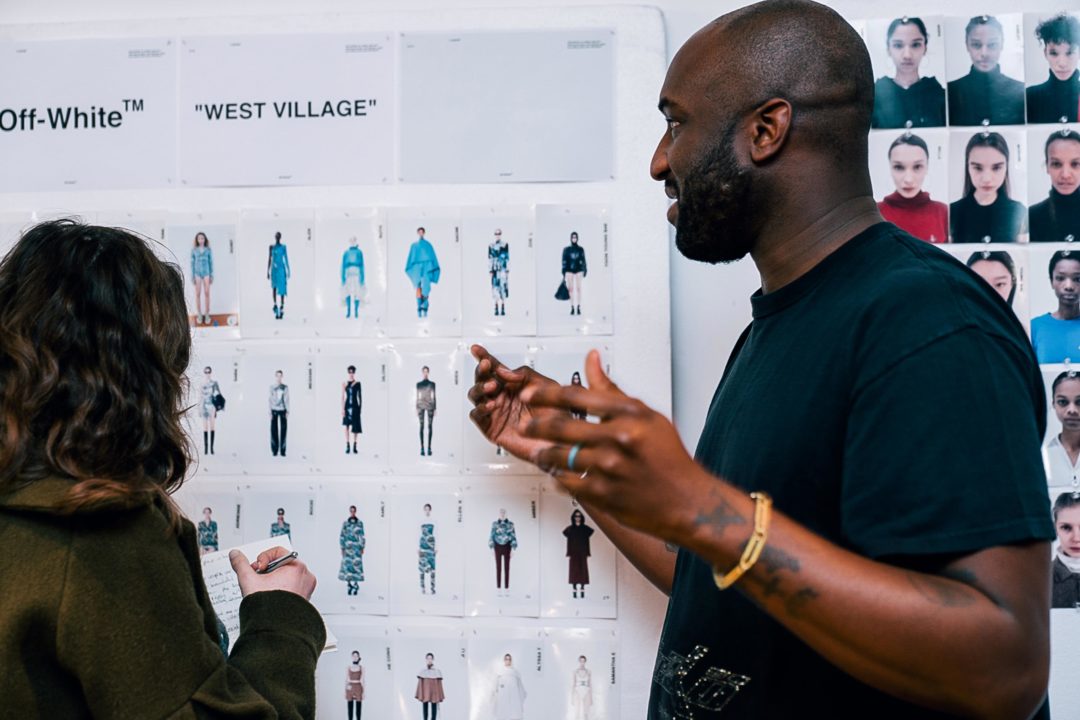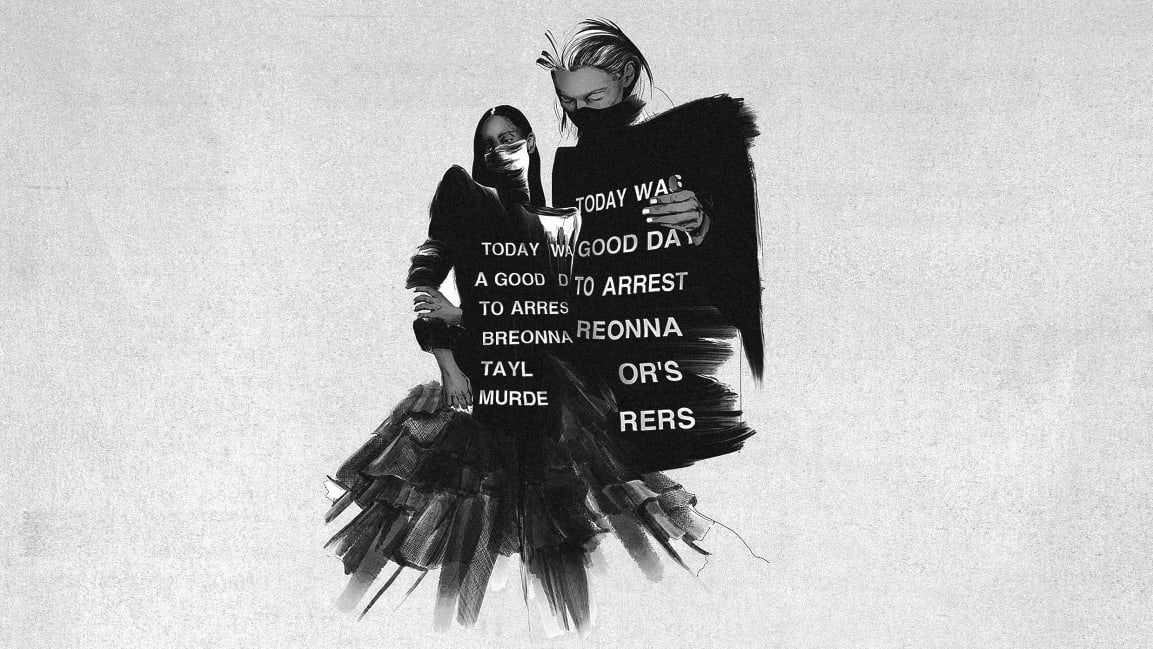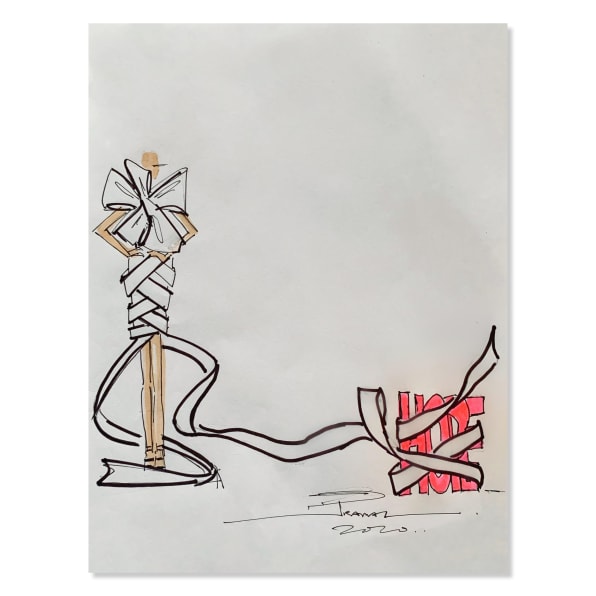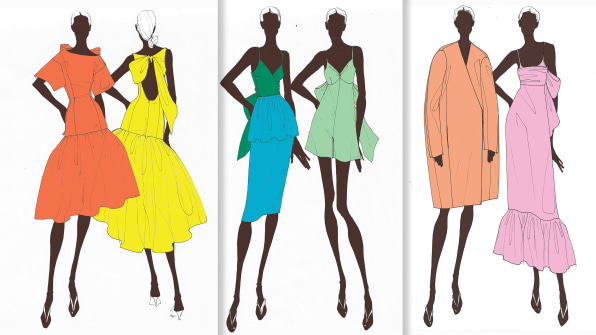Travel, music festivals, and theatre are some of the obvious things that we can now declare as “changed forever” after the year we’ve all had with COVID-19. However, another important faction of our lives that has also been impacted by COVID-19 is fashion. Three of America’s most influential designers are already thinking about what the post-COVID fashion industry will look like, and they’ve shared some of those sketches with the world.

American business magazine, Fast Company, recently reached out to three high-end fashion designers to discuss how they were imagining the new fashion world after the pandemic in their minds. The sketches they received back, whilst all being incredible, have reflected vastly different influences that the pandemic has had on each individual designer. From the Black Lives Matter movement to an optimistic view of hope and sustainability, COVID-19 has shaped each designer and the way they see fashion and the world, in a distinctive way.
Virgil Abloh

Owner of luxury streetwear brand Off-White and the first black artistic director of Louis Vuitton, Virgil Abloh knows a lot about overcoming adversity. Climbing the ladder of the fashion world from the time he graduated college as an engineer, Abloh has created a space for streetwear within luxury high fashion. Off-White was seen as Abloh’s success-story, in that he created a luxury brand that was built almost entirely from social media. Proving himself in this aspect, he was then seen as an “unorthodox” choice as the artistic director of Louis Vuitton, largely because of the fact that the label was known for being extremely exclusive, conservative and largely European in their choice of staff.
In an interview with Naomi Campbell for Vogue Abloh expresses, “I didn’t ever think I could be a designer with a capital D because no one looked like me”.
This unique background that he has as a designer is evident within these new sketches. The solemn, dark sketches Abloh has created with their ironic statements, emphasise the impact the BLM protests have had on Abloh, and how they have resonated with his own experiences.
In conversation with Fast Company Abloh explains, “as a black man who has known racism for my whole life, I want to use my voice to keep the pressure on in the fight for justice and equality”.
Prabal Gurung

Growing up in Nepal and moving to Parsons Design School in New York to give his fashion career a chance, Prebal Gurung is well aware of the privilege he holds in “making it” as a designer. Gurung stresses that throughout his work, “everyone’s voice matters. That is a fundamental principle that I work off in everything that I do”.
In his designs for a post-COVID world, Gurung’s work centres around the feeling of hope.
With over-the-top bows that curtsy into the word ‘HOPE’, Gurung told Fast Company, “this sketch was inspired by the idea that during difficult and trying times, hope is the ultimate resistance”.
This concept isn’t just enacted throughout these designs, but also in his most recent collection iMPOWER. The label has been made exclusively available through Walmart, due to the global reach the store has (reaching 27 countries around the world), as well as it’s accessibility to everyone.
Gurung explains, “iMPOWER is a socially conscious lifestyle brand that focuses on intention, action and hope”.
Proving that Gurung is taking real steps throughout his design and business choices to put his words of hope and inclusivity, into action.
Tracey Reese

Tracey Reese in the 11th grade received a scholarship to attend New York’s Parson Design School for the summer. What she didn’t foresee was that one summer holidays would change the entire trajectory of her life.
After that leap, her fashion career took off and since then, she has not been shy to dramatic changes in the fashion world. When she launched her label in 1998, the e-commerce transition had just begun, in the early 00s and onwards she encountered the diversity and body positivity movement and now in 2020 she faces the challenges of climate change and a global pandemic.
Reese’s sketches are quite similar to her collection of 2019 titled “Hope for Flowers”, in that she imbues a sense of simplicity, optimism and vibrant colours within all of her designs. In her 2019 collection, she focused on using only sustainable materials, ethically produced resources and using handwork, to engrain integrity and quality within her work as she rebels against the growing world of ‘fast fashion’. These are practices that she vows to take with her throughout her coming designing years.
Last year in discussion with Vogue, Reese discussed her distaste for fast fashion and unethical production, “if you’re selling a garment for $10, let’s just do the math and understand what that means for all the people along the supply chain. It’s like slavery. I knew I didn’t want anything to do with that”.
Her post-COVID designs are seen as a step towards a brighter future. She explained to Fast Company, “fashion can help us transcend even the darkest of times”.
Subscribe to FIB’s Weekly Alchemy Report for your weekly dose of music, fashion and pop culture news!







